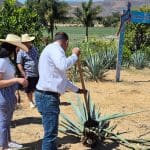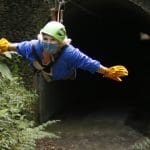The right way forward:
COMING BACK RESPONSIBLY
for travellers, locals and the planet
Ann Ruppenstein
Should you travel right now? It’s an ethical question that has come up recently — especially as COVID-19 cases spike across multiple destinations that have reopened to international travellers and others yet are still grappling with controlling the spread of the virus at home.
In order to move forward, tourism needs to restart, but can it be done more responsibly for both visitors and locals alike when the time is right?
As the world slowly starts to reopen, what can tour operators and travellers do to ensure they aren’t negatively impacting destinations? What should travel agents consider before booking trips at a time when commission continues to be their livelihoods? Even before the pandemic hit, overtourism and climate change were just some of the key challenges those in the industry were tackling on the path to a better future.
In search of answers to questions about how the travel industry can come back the right way for travellers, communities and the planet, Travel Courier chats with The Adventure Travel Trade Association, G Adventures, Beyond Green Travel, and Tourism Cares.
As destinations begin to reopen to travellers, the crowding that put extreme pressure on many destinations must be managed in a new way — not only the safety of the traveller but for the survival of local communities and ecosystems, points out Paula Vlamings, the Chief Impact Officer for Tourism Cares, the non-profit, philanthropic arm of the travel and tourism industry.
“Opening the floodgates in the same way will get us the same problems as before so travellers should rethink those bucket list trips for off peak times, off the beaten path alternatives, or travel in a way that supports nonprofit organizations and social enterprises that are working toward sustainable solutions.”
Paula Vlamings
Chief Impact Officer, Tourism Cares

Vlamings says there are many measures travellers can take to mitigate their negative impact on a destination.
“It starts by educating themselves on the cultural norms and traditions of where they are going, and being respectful, responsible visitors — we should always remember we are guests in other people’s homes when we travel. A nice place to visit must be a nice place to live,” she explains. “Travellers should make sure the tour companies they use demonstrated sustainable business practices such as buying from local owned businesses, fighting the plastics pollution, supporting wildlife conservation organizations and adhering to animal welfare and child safe policies.”
Staying in local hotels and eating in local restaurants are critical sources of revenue, especially now when tourist communities are not seeing very many visitors is another means of leaving a positive impact.
“Travellers can also offset their carbon emissions, reduce their plastics use, use less harmful sunscreens on coral reefs, and support indigenous owned businesses and organizations,” she adds.
Overall, Vlamings says tour companies can balance the need for tourism with whether or not its responsible to operate there by operating their businesses responsibly.
“They can partner with local communities and work with governments to make sure tourism is inclusive and not exploitive, that ecosystems and culture aren’t being degraded by the number and actions of visitors, and develop partnerships with NGO’s and social enterprises to ensure their business is contributing to the health and well being of a destination,” she says.
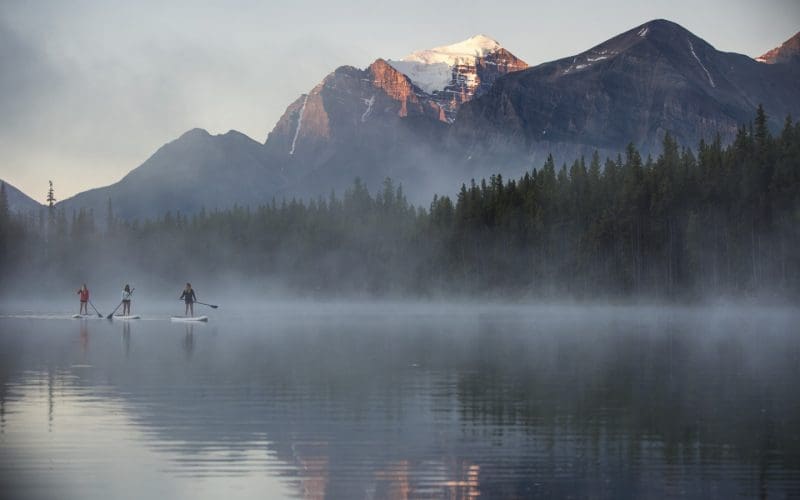
"While no tourism isn’t good for destinations, overtourism isn’t either, and the current crisis has provided a pause that destinations, companies and governments can and should use to reset for a better balance."
Paula Vlamings Tweet
Before returning to a destination as a company in the current climate, she says tour operators should consider making sustainability a more critical part of their business models.
“Tour operators can invest more in destinations to preserve the tourism asset which builds not only healthier destinations but more authentic and immersive experiences which people are seeking even more now in the current climate,” she says. “The way forward is to put destinations at the centre of tourism development as local communities and nature are the currency in which they trade. By making a stronger connection between the tourism industry’s reliance on selling nature and culture and its responsibility to invest in protecting cultural and natural heritage, tour companies can ensure a more sustainable future for all.”
In order for travellers to ensure they aren't having a negative impact on the destinations they visit, Bruce Poon Tip, the founder of G Adventures, says it’s important to follow the guidelines given by both their home country and the country they’re planning to visit.
“Wearing a mask and social distancing are the new normal for travel and will help protect both yourself and other people when you’re in a new destination,” he says. “I don’t believe this will be the case forever, but for now we need to adapt and do our best to keep each safe.”
Bruce Poon Tip
Founder, G Adventures

Before returning to a destination, he says the adventure travel company takes many factors into consideration.
“This is really a fluid situation, with regulations changing often, sometimes daily,” says Poon Tip. “We’re looking to the various advisories to help guide our decisions, for example the U.K. has created a number of air bridges with other countries in Europe, so we’re able to market and operate a small number of tours in September.”
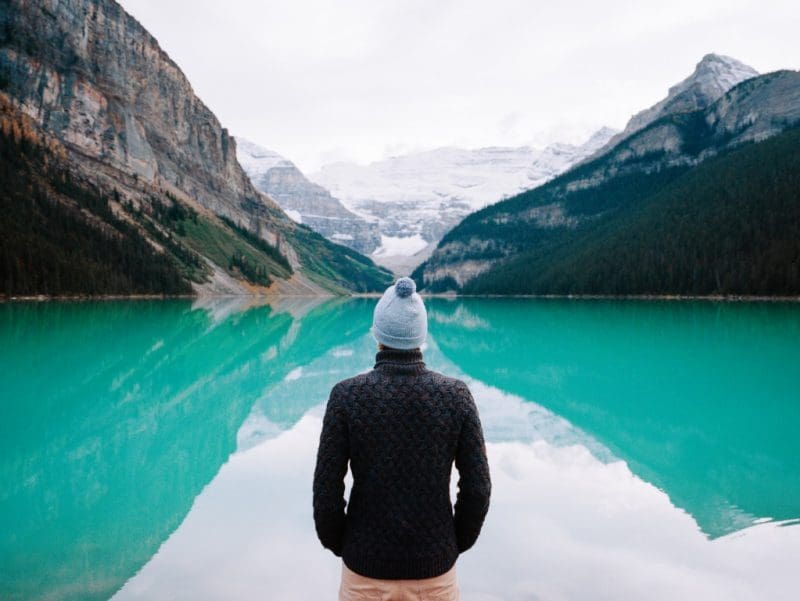
“So long as the need to quarantine on return is in place for countries like Canada, it’s going to be a challenge, but we do want to be able to safely introduce options for people to travel as soon as we are able to.”
Bruce Poon Tip Tweet
With health and safety being paramount at the moment, he points out that it’s important for people to follow government advisories and take all the necessary precautions to keep themselves and their fellow travellers, as well as local communities, safe.
“Different people will have different comfort levels, so some will be travelling sooner than others as regulations change,” he tells Travel Courier. “For those booking further out, travellers should look for companies who have their welfare front and centre, with enhanced hygiene and physical distancing measures in place.”
To meet the needs of these travellers and to continue to operate responsibly in destination, G Adventures recently launched its Travel with Confidence policy across all its tours, as well as created a new Travel with Confidence Plus Collection of trips, which have even more physical distancing measures in place for added reassurance.
“And please wear a mask!” he reiterates.
In the age of pandemic travel, Costas Christ points out that many tourism destinations have worked incredibly hard to bring the virus under control and prevent it from spreading further.
“Every traveller has a responsibility to the places they visit to follow local health and safety guidelines — wear masks when requested and adhere to quarantine rules, rather than trying to get around them,” he says. “There are too many examples of travellers doing what they want to do and not what they need to do to protect themselves and to protect others. I live on the coast of Maine, which is a popular tourism destination. We have seen a spike in COVID cases in some areas such as Bar Harbor because travellers on holiday have not respected local public health guidelines.”
Costas Christ
Founder, Beyond Green Travel

The president of Beyond Green Travel, a company that works with destinations, tour operators and non-profit groups to build their brands and make travel a force for good, tells Travel Courier that beyond the pandemic aspect, travellers can strive to be more responsible when they get out there again.
“We can all have a more positive impact when we travel if we support travel businesses that are committed to sustainable tourism best practices, such as environmentally friendly operations, protecting nature, celebrating cultural diversity, and supporting economic and social benefits to local communities,” he says.
Noting that sustainability and safety are not mutually exclusive, he feels people should consider both before they travel right now. As for what those in the travel industry consider before returning to a destination as a company, he points to determining that the coronavirus transmission rate is low and going down, that the country has good public health safety protocols in place, and that guests will be able to experience the attractions they are seeking, while adhering to local guidelines.
“I would also add that a company should consider how a destination is working to protect the environment and help local communities get through the pandemic crisis; does the country have policies in place that incentivize travel companies to do the right thing?” he says. “For example, the government of Colombia is currently working on making sustainable tourism a national priority, recognizing the importance of ensuring that tourism protects and benefits their natural and cultural heritage.”
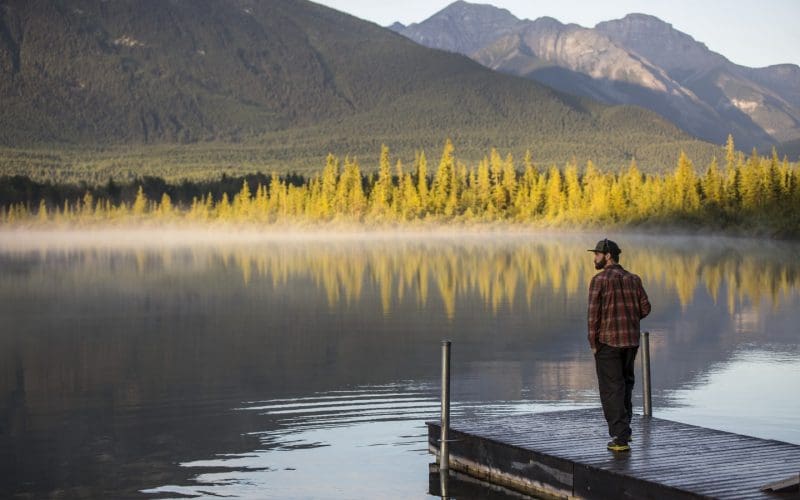
Looking ahead, Christ states that the industry can’t and shouldn’t go back to the pre-pandemic past of tourism that was spinning out of control from Venice to Bali and damaging the very places people want to visit.
“We need to recognize that the foundation of the travel industry is built upon selling nature and culture, and therefore travel companies also need to invest in protecting the “product” they sell,” he says.
"When travel is done the right way — the sustainable way — then local people and visitors alike benefit from the power of travel to alleviate poverty, protect nature, and safeguard cultural heritage for future generations, all while delivering that vacation of a lifetime."
Costas Christ Tweet
As the industry starts to rebuild, he stresses that the world needs sustainable tourism now more than ever.
“In Africa, responsible travel companies are directly protecting millions of acres of wilderness — the final frontier for some of the rarest wildlife on Earth. Likewise, tens of thousands of local communities depend upon tourism for their economic survival, and in turn, they are partners and allies in saving nature,” he says. “When it comes to problems of mass tourism, it is always important to remember that when we travel, we are guests in another place. Mass tourism has shown itself to be harmful to local people and the planet. The sudden stop to travel during the pandemic has led countries and companies to rethink travel to avoid the mistakes of the past and create a better future – a good thing.”
Shannon Stowell, the CEO of the Adventure Travel Trade Association (ATTA), encourages travellers to view travel as a privilege, not a right.
“We’re in other people’s place of living and need to act respectfully in that regards, just as we’d expect in our own places of living,” Stowell says, noting there are plenty of ways travellers can also ensure they aren’t having a negative impact on the places they visit. “Paying attention to all aspects of the trip — are local people involved in the experiences? Or are the locals excluded? Use reusable items like water bottles to reduce garbage. Consider subscribing to Tomorrow’s Air to recapture carbon created by travel or at least mitigate impact by offsetting.”
Shannon Stowell
CEO, Adventure Travel Trade Association
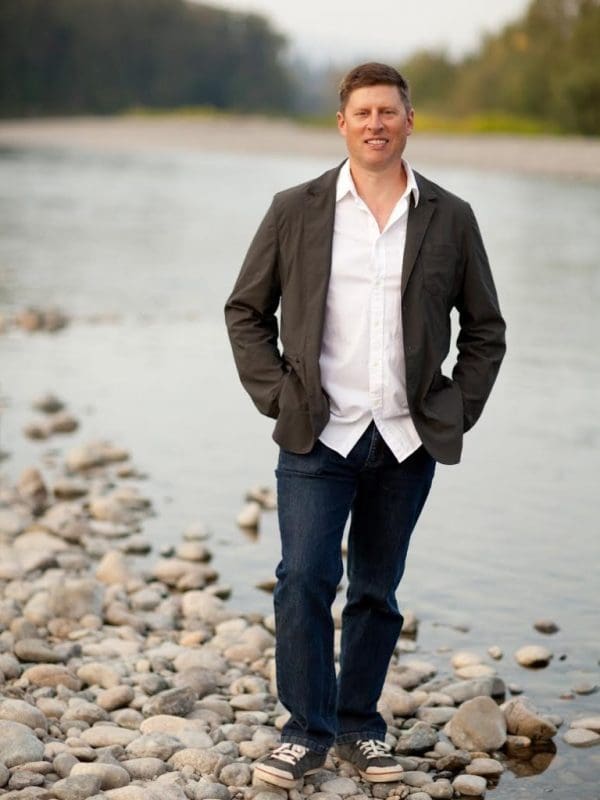
Ahead of returning to a country as a tour operator, he suggests investigating how the destination’s data is shaping up.
“Are cases falling or rising? Does the government appear to be taking the threat seriously? Portugal for example has a program for health and safety that all businesses serving the public must follow,” he says.
Meanwhile travellers will consider their own risk factors first before looking at the risk points in their trip.
“Clearly there is no way to completely eliminate risk but going camping and doing a road trip is significantly less risky than going to crowded places,” he says. “If you’re traveling with a company or staying in a hotel, it’s a very fair time to ask what guidelines or protocols they are following. I don’t think it’s a bad practice to ask for a room that no one has stayed in the previous day to lower risk as well.”
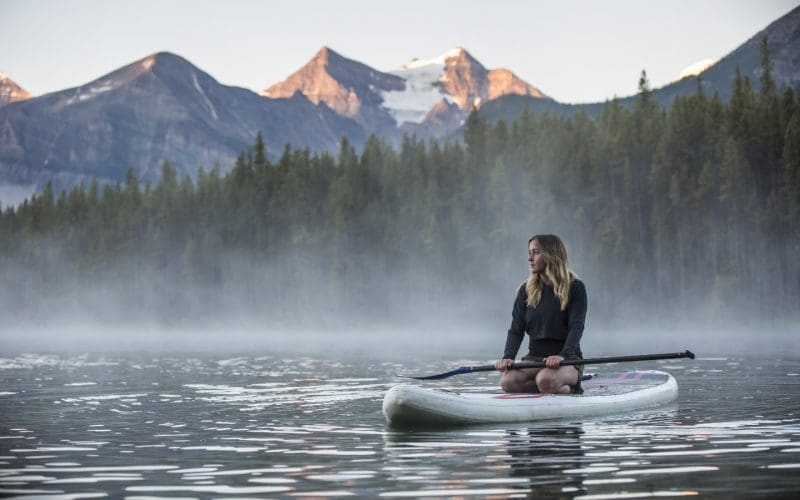
"I like to encourage travellers to view travel as a privilege, not a right. We're in other people's place of living and need to act respectfully in that regards, just as we'd expect in our own places of living."
Shannon Stowell Tweet
In general, when it comes to balancing the need for tourism with whether or not it is responsible to operate there, he says following the government’s mandates is a clear line.
“The fuzzier line comes in places like the US, which is all over the map with regulations and policies, and I think the operators should be very clear to travellers — risk cannot be eliminated, it can be reduced and mitigated,” he says. “Everyone needs to exercise personal responsibility in this case. Operators should also be thinking about the vulnerability of remote populations of locals who may not have access to medical resources easily. In this case, I believe social distancing, masks and the works should be employed in full force to protect.”





